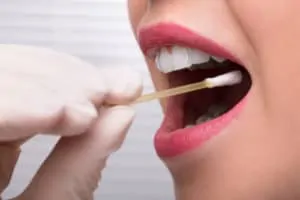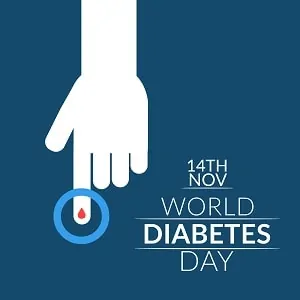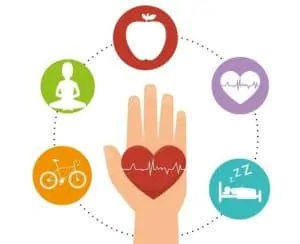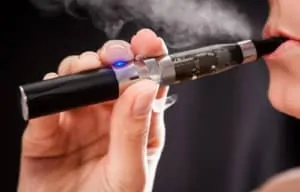General Dentistry

What is Tongue Positioning?
Tongue positioning and tongue posture are interchangeable terms used to describe the positioning of our tongues while at rest. Even though this may sound silly, there is such a thing as good tongue positioning and bad tongue positioning, and the truth is, bad tongue positioning can affect oral health as well as other parts of the body.
Why is Bad Tongue Positioning Bad?
Do you remember the song that goes, “the leg bone is connected to the knee bone?” Well, our tongues are kind of like that. You see, tongues are super strong muscles that impact several areas of our bodies, including our mouths, eyes, noses, heads, necks, and shoulders. Knowing this, it probably comes as no surprise that if we don’t have proper tongue positioning, it can cause trouble in these other areas of our bodies. Improper tongue posture can contribute or lead to:
- Sleep Apnea
- TMJ
- Problems with Vision
- Bad Body Posture
- Tooth Damage
What is Proper Tongue Positioning?
So, what exactly is proper tongue positioning? Simply put, proper tongue positioning occurs when someone gently rests their tongue on the roof of the mouth and away from the teeth. During rest, the lips should also be closed, and the teeth slightly parted. Practicing proper tongue positioning can help protect teeth from shifting and can improve sleep, decrease neck and jaw pain, and reduce the number or intensity of headaches.
What is Bad Tongue Positioning?
Your dentist in Sparks will tell you that if you rest your tongue on the bottom of your mouth or up against your teeth that you have bad tongue positioning. Besides the concerns listed above, putting repeated pressure on the back of teeth can cause them to shift, become crowded, or even result in tooth grinding and decay. Additionally, resting your tongue on the bottom of your mouth can cause increased neck pain, jaw pain, and even change the way someone looks. Go ahead and try something for us. Rest your tongue up on the roof of your mouth, then move it down to the bottom of the mouth. You should notice an obvious shift in your chin, neck, and head. Now, if the tongue is rested on the lower mouth over several years, it can create a longer, flatter face shape or cause the chin or forehead to jut forward permanently.
How to Fix Bad Tongue Positioning
The good news is you can work to improve your resting tongue positioning by first becoming more aware of where your tongue falls at rest. If you notice that your tongue is falling to the bottom of the mouth or is pushing up against your teeth, focus on consciously changing its position. Keep in mind, permanently changing your tongue positioning can take time and practice, so be patient.
Of course, if you have concerns about your tongue positioning and how it may be affecting your oral and overall health, talk with your dentist in Sparks.
Almost all of us have experienced the annoyance and pain associated with tooth sensitivity. In fact, the Academy of General Dentistry estimates that 40 million American adults have sensitive teeth. That’s quite a lot of people who suffer from those unexpected zings of nerve pain every day. So many, in fact, that your dentist in Sparks wants to talk all about sensitive teeth in this week’s blog.
Top Causes of Tooth Sensitivity
What exactly is going on when our teeth feel sensitive? Tooth sensitivity is ultimately caused by enamel erosion, which can leave the inner workings of the teeth, including the nerves, exposed to the elements. However, there are a variety of things that can cause enamel erosion, which makes each situation of sensitive teeth unique to the individual. Let’s take a look at some of the top causes of enamel erosion and, therefore, sensitivity.
Brushing Too Hard – Even though it’s important to brush your teeth thoroughly twice a day, it’s equally important to do so properly. Many patients think that the harder they brush the cleaner their teeth will get. But that’s just not the case. Scrubbing too hard can damage that important protective layer of enamel and cause sensitivity.
Grinding Your Teeth – Similarly to brushing too hard, grinding your teeth puts a lot of pressure on the enamel and can easily wear it away. Tooth grinding can also cause chips or cracks to occur which can also increase the likelihood of someone experiencing sensitive teeth.
Gum Disease – A lot, if not most, tooth sensitivity starts and occurs at the gum line. When plaque buildup is not removed and good oral hygiene is not maintained, bacteria get up under the gums which, if not treated, will lead to gum disease. Gum disease can most definitely cause sensitivity and other problems.
How to Treat Tooth Sensitivity
It’s important to note that sensitive teeth aren’t something you should treat at home long term. You should schedule an appointment with your dentist in Sparks to find the best treatment for your sensitive teeth. However, there are things you can do to help reduce sensitivity or avoid it in the first place.
Easy on the Hot and Cold Foods
Many times tooth sensitivity is made worse when exposed to hot or cold foods or drinks. We encourage you to try to avoid foods or drinks at these extreme temperatures to help keep sensitivity at bay. Also, another surprising culprit is acidic foods and drinks. Enjoy these in moderation and avoid them if you find they make your sensitivity worse.
Brush With a Soft-Bristled Toothbrush
Everyone should be using a soft-bristled toothbrush to brush their teeth as they’re easier on tooth enamel. Stiffer bristles can easily damage enamel and contribute to sensitivity.
Pick Toothpaste for Sensitivity
Consider switching your toothpaste to one specially formulated for sensitive teeth. Be sure to look for one that has the American Dental Association Seal of Acceptance. This means the product has been tested and its advertising claims validated.
Tooth sensitivity is nothing to take lightly, and nobody should have to live with the surprising zaps of pain or avoid their favorite foods long-term. If you have sensitive teeth, call your dentist in Sparks to schedule an appointment today.

25,000 Quarts of What?
In your lifetime, you’ll produce an average of 25,000 quarts of spit. That’s enough saliva to fill a standard size swimming pool. But why do we need so much spit? We’re glad you asked.
Spit is an extremely important part of a healthy mouth as it helps remove food particles that may linger around after a meal. This is key to protecting teeth against dangerous bacteria that just love to feed on leftovers. The more spit we produce, the more food is rinsed away, and the better protected your teeth are. Spit’s superpowers don’t end there. Saliva can also help neutralize plaque acid, which can protect your pearly whites from decay.
Not Enough
There are times when you may not be producing enough spit. If this is the case, you probably feel as if your mouth is always dry, no matter what you do. Don’t ignore this symptom – call your Sparks dentist as soon as you can. A dry mouth is a serious problem that can increase the risk of decay since there’s not enough saliva to wash away food and bacteria and neutralize acids. Talk with your dentist to find out what may be causing your dry mouth and work together to find the best solution.
Spit and Overall Health
Spit’s benefits reach beyond oral health alone. Spit can help find bone marrow donor matches to help those with blood cancers. Unfortunately, the prevalence of blood cancers is extremely high, and every three minutes someone in the U.S. is diagnosed with blood cancer. This makes bone marrow really important. But patients can’t use just any bone marrow. There has to be a match. BeTheMatch.org is an organization that encourages people to join the bone marrow registry by simply swabbing the inside of the cheek and submitting it to their library where they’ll scan the registry to help find matches for patients. Who knew something so simple could help save a life?
Even though your dentist in Sparks may be more used to spit than you are, and while it may be a little gross, try to remember just how important it is for oral health and how it can help someone battling a very serious and very scary disease.

Oral Health & Diabetes
Diabetics and their caregivers are well aware of just how much the disease can affect the body, but an often overlooked side effect of diabetes is directly related or oral health. The truth is, diabetes can increase the risk for gum disease, oral infections, poor healing after dental treatment, and dry mouth. If you’re diabetic or have a loved one with diabetes, try these tips to keep oral health in tip-top shape.
Tip #1 – Regular Dental Care is Key
Practicing good dental habits at home is a great way to reduce the risk of diabetic complications related to oral health. Make sure to brush your teeth twice a day, every day, for two minutes. Use a soft-bristled toothbrush and scrub gently to avoid damaging your teeth or gums. Also, brushing your tongue and flossing every day can take your at-home oral hygiene routine one step further and remove even more plaque and bacteria. At our dental office in Sparks, we also recommend maintaining regular visits with our team so we can keep a close eye on oral health. This is especially important if you’re diabetic.
Tip #2 – Eat Smart
Those with diabetes know the importance of eating healthy to control their blood sugar levels, and we can’t stress enough how important a well-balanced diet is for your oral health, too. Minimize your sugar intake to avoid blood sugar spikes and to protect your teeth from its damaging effects. Choose fresh veggies, fruits, and whole grains for a complete diet that’s not only good for your body but also good for your smile. If you’re unsure which foods are best and worst for diabetic patients, talk with your doctor about creating a meal plan.
Tip # 3 – Level Out
Diabetics are accustomed to checking and maintaining their blood glucose levels, and for good reason. Spikes in blood glucose levels can damage essential organs such as the heart and kidneys. But increased blood glucose can also cause problems with your mouth. High blood glucose in diabetics also means a higher chance of loose teeth or even losing teeth altogether. Another oral health concern related to diabetes is gum disease. Gum disease is a serious condition for anyone, but diabetics may have more problems fighting the infection and, in turn, keeping their diabetes under control.
Join our dental office in Sparks in celebrating World Diabetes Day by wearing blue, scheduling a check-up with your doctor if you suspect you may have diabetes, and of course, always brush and floss.

We’re here to remind you…it doesn’t matter if it’s been a few months or even a few decades since your last trip to the dentist. You have nothing to be afraid of or feel anxious about. We’re here to tell you why and show you how you can feel better fast.
Tip #1 – Take Your Comfort Seriously
We understand how uncomfortable it can be to have severe dental anxiety. It’s downright debilitating for you and your smile. Your Sparks dentist will tell you that you deserve so much better! There’s a sense of calm and relaxation in everything we do. You’ll feel assured and soothed, maybe even pampered during your dental visits.
Tip #2 – Don’t Avoid Your Appointments Out of Fear
Meeting a patient of any age who is afraid of the dentist is always disheartening. Whether they have fear because of a traumatic dental experience in the past or because they don’t like doctors, we believe every patient should feel happy and worthy of a beautiful, healthy smile.
So many times, we meet patients with loose teeth, missing teeth, bleeding gums, bad breath, and more. They’re usually experiencing these issues due to untreated dental problems. The good news is, we can get you out of pain fast and fix your smile back to perfection.
Tip #3 – Know You’re Not Alone – Ever
From the moment you walk in the door to our state-of-the-art office, you’ll have someone with you, a partner who cares about your comfort. This is especially true for our most fearful or anxious patients. That’s why it’s important to discuss your worries with us before your visit, so we can be prepared to pamper you with relaxation.
Like we’ve said before, you’re not alone if you don’t like going to the dentist! The Cleveland Clinic says between 9% and 15% of Americans say they avoid going to the dentist because of anxiety or fear. Does this hit close to home for you or someone in your family? As your appointment approaches, so does the feeling of anxiety or uneasiness. Maybe your heart races and your palms begin to sweat. While this sounds like the beginning of a spooky story, we know it’s all too real for patients who are afraid of seeing the dentist.
Patients who are afraid of or anxious about getting the dental care they need are some of our most treasured patients. We’ve seen how the most fearful patient can transform into one of our best dental patients in terms of keeping up with regular checkups and cleanings.
If there’s something we can do for you to make visiting our Sparks dental office a more relaxing experience, we hope you’ll share it with us. It could make a huge impact on your life or someone else’s! Don’t hesitate to reach out to us online or by phone with questions about your oral and overall health.

These little bite-sized treats are tricky because you think you can have one and just be done. You give in to your cravings and then “BOOM” the next thing you know there are wrappers everywhere and an empty bag to boot. We tried these three easy tips to help stop you from wanting to indulge in everything sugary and sweet, and they actually worked.
Step #1 – Drink Water (Lots of It)
We’re sure you’ve been told somewhere along the way, sometime in your life about the importance of drinking enough water daily. The key is staying hydrated so that your body can function optimally and maintain a proper eating or digestive routine. If you’re craving something sweet, don’t be tempted to reach for an energy drink or a sports beverage. They’re not healthy (like they labels might lead to you believe), and they contain sugar that sticks to teeth and leads to decay.
While opinions differ about how much water a person should consume each day, there’s a little handy, dandy trick called the 8×8 rule you can use. Most health authorities suggest drinking eight, 8-ounce glasses of water daily, or 8×8! (This is equivalent to about two liters or half a gallon).
Step #2 – Eat Healthy
Cravings for sugar are different than your body telling you it’s hungry. It’s your brain playing a little trick on you compared to when you need to refuel for energy, and your body says it’s hungry. Your mind wants you to eat the sugary treat because you’ll feel a release of dopamine as part of your body’s “reward system.” Try to opt for healthy snacks such as fruits and veggies. Go ahead and eat a meal that’s rich with protein, which is excellent for helping to curb cravings and hunger.
We understand that eating real, healthy food isn’t the same as diving into that bag of candies or indulging in that cupcake. But your body (and your smile) will surely thank you for making the right choices now, so they’re there for you in the long run.
Step #3 – Get Enough Sleep
Your Sparks dentist will be the first one to tell you how important sleep is in our lives. It does make a difference in both your oral and overall health. Sleep loss can dramatically change the timing and release of certain hormones responsible for controlling your appetite. When you’re deprived of a good night’s sleep (especially regularly), these hormones get released in larger amounts. Your stomach also releases the hormone that makes you feel full in smaller amounts, causing a perfect storm for cravings and binge on sweets.
What’s more interesting is this: studies show that we change what kinds of foods we purchase when we’re overly tired, too! Researchers found that an increase in hormone levels contributed to us wanting to buy foods that are high in calories and sugar. Both our bodies and brains crave the rewards of unhealthy foods when we get less than seven hours of sleep each night.
We hope you’ll give these three steps a shot, whether it’s on a small or even a bigger level. We know how hard it can be to say no to sweets, no matter what age you are. This time of year, with all of the added pressure, is an excellent opportunity for you to use these tools discussed here to keep your body and your smile healthy. If you have any questions about these tips or would like to know more about how to take care of your teeth, email or give our Sparks dental office a call!

Tip #1 – Keep Your Gums Healthy
There’s a reason why this is number one! Your gum health is so critically important to the rest of your body. According to the Mayo Clinic, recent studies are revealing new evidence that oral bacteria and inflammation due to gum disease are related to a variety of health issues. They include:
– Diabetes
– Low Birth Weight
– Premature Births
– Alzheimer’s Disease
– Stroke
Tip #2 – Keep Plaque from Attacking Your Teeth
There’s a good chance that if you tested your mouth right now, there would be about 500 different types of bacteria hanging out there. Some of them are good. Some of them are not-so-good. The harmful bacteria have a good time sticking to your teeth, forming a colorless, sticky substance known as plaque. This stuff attacks your dental enamel and loves to create periodontal problems or gum disease. It’s important to keep your teeth clean and free from plaque buildup. You can do this by:
– Brushing – Remember to brush for two minutes, twice a day. If you’re unable to brush or floss, don’t forget to try at least chewing a stick of sugarless gum to help fight bacteria.
– Flossing – Flossing recently got some bad press, questioning whether it’s necessary. We’ll always tell you to say “YES” to flossing. In fact, it’s super important to help keep your gums healthy. Flossing removes the bacteria and plaque that can get stuck between your teeth where your toothbrush can’t reach. Dental floss is one of your gum’s best defenses against harmful bacteria.
– Seeing Your Sparks Dentist – Remember to keep up with your regular dental appointments and cleanings. We make scheduling a visit comfortable and convenient, so you don’t have to worry about any hassle or issues. It’s important to have regular dental care so that we can monitor any changes to your gum and smile health.
Tip #3 – Keep Eating (and Drinking) Right
Remember to treat your body and your smile right by eating healthy. One of the most significant contributors to tooth decay and gum disease is sugar. Try to limit sugary drinks and foods for you and your family. This includes sodas and sports drinks that seem to be so readily available these days. Always opt for water when you’re feeling dehydrated. Having a balanced diet is a critical element of having optimal oral and overall health. Check out the “Food Plate” guidelines courtesy of the USDA to see how easy it is to maintain a proper, simple diet. You’ll get an idea of what food options are an excellent choice and which ones you should avoid altogether.
At our Sparks dental office, we’ll always stress the importance of taking care of your teeth so the rest of your body can stay healthy too. We can’t wait to see what research uncovers as science and technology progresses each year. Always remember that giving your mouth the same attention you give the rest of your body is going to help ensure you’re able to live a long, happy life. Talk to us about scheduling your next dental visit today!

Whole Body Concerns
Vapes, or e-cigarettes, have been in the U.S. since 2007, but their popularity seems to have increased rapidly over the past few years. Because of this dramatic surge in popularity, science and research regarding these devices is a little behind. But recent studies show us that maybe vaping isn’t as safe as we may have thought. Vaping may be linked to an increased risk of pneumonia, rapid heart rate, congestive heart failure, and stroke. So while we may have once believed vaping was a safer alternative to smoking, that simply may not be the case.
Oral Health Concerns
More research on how vaping affects oral health is needed, but more and more studies continue to find that there are certain risks involved, including:
Dry Mouth
Many vape liquids include the ingredient propylene glycol, which is known to cause dry mouth. Dry mouth, if not treated, can greatly increase the risk of decay, cavities, and gum disease. Not to mention, dry mouth can also cause some serious chronic bad breath, which can be a challenge to overcome.
Inflamed Gums
A 2016 research study found a potential link between vaping and gum disease. To be more specific, vape juice caused an inflammatory response in the gum tissue that can put you at risk for gum disease.
Cell Damage
Vaping may also destroy cells’ DNA and inhibit their ability to divide a grow. Basically, vaping can kill cells and cause bad breath, bone loss, tooth loss, and gum disease.
Focus on Quitting
Even though some people may have started vaping to help them quit smoking, there’s conflicting research regarding its effectiveness. For example, one study found that e-cigarettes helped current smokers reduce the number of cigarettes they smoked by about half, while another suggested that smokers who use e-cigs are 59% less likely to quit. Instead of trading one habit for another, try to focus on proven ways to break away from nicotine once and for all. Consider:
- Work on limiting the number of cigarettes you smoke a day, and decrease over time.
- Try quitting without the use of nicotine replacements — fair warning, this can be extremely difficult.
- Find different ways people have quit. You never know what may work for you. The American Lung Association is a great resource for smokers who want to quit.
Finding what works for you may take time, but don’t give up. Quitting greatly reduces your risk of health problems caused by smoking and vaping.
If you are a smoker or use e-cigarettes, make sure you always see your dentist in Sparks every six months to keep a proactive eye on your oral health and so that any problems such as oral cancer or gum disease can be caught early.

The truth is, our oral health needs will vary as we celebrate more birthdays, and needs will also differ from person to person. That’s one reason we believe in treating each person with individualized, custom care. When it comes to the senior population, there are a few unique things to be aware of.
- Discolored Teeth – While anyone can experience discolored teeth, there’s usually an explanation. Maybe morning coffee is to blame, or perhaps smoking or red wine. But when it comes to seniors, discoloration may occur without any obvious explanation. Most commonly, tooth discoloration as we age is a typical sign that the white outer layer of our teeth (enamel) is wearing away and becoming thinner. When this happens, your teeth can become a little transparent and the inner workings of the tooth become more visible. As it turns out, the insides of teeth are not as white as the outsides, and the more we’re able to see them, the more dark or yellow teeth can appear.
- Dry Mouth – Dry mouth is another condition that can happen to anyone, but it does tend to be more common in seniors. Many times, medication is to blame. There are tons of over-the-counter medications and prescription medications that list dry mouth as a side effect. When these medications are taken regularly, saliva production slows down and the mouth becomes dry… and there is nothing bacteria like better than a dry mouth. Without saliva on hand to rinse away bacteria and neutralize acid, teeth are at an increased risk for developing cavities. If these cavities aren’t treated, they could lead to the need for a root canal, cause tooth sensitivity, or even tooth loss. If you’re experiencing dry mouth, do not stop taking your medication as prescribed, but do talk to your dentist in Sparks.
- Tooth Loss – Let’s start by saying that there’s no guarantee that we’ll lose our teeth as we get older. There are plenty of people who keep their teeth for a lifetime, especially if they see their dentist regularly and practice good oral hygiene habits. However, tooth loss can be a real concern for many people. The best ways to reduce the risk of tooth loss is to avoid smoking or using tobacco, limiting alcohol intake, and seeing your dentist in Sparks every six months. These preventative dental appointments help identify problems early while they’re still often easily treatable and can help save your teeth.
- Gum Disease – One of the more serious concerns for seniors’ oral health is gum disease. In fact, research suggests a strong link between gum disease and Alzheimer’s disease, heart disease, and stroke. Gum disease occurs when bacteria isn’t removed and it works its way under the gum line. Once this occurs, it becomes difficult to remove and can lead to an infection or advanced gum disease. If not treated, gum disease can lead to tooth loss. The common signs of gum disease include red, bleeding, and inflamed gums.
Unfortunately, there’s no way we can stop ourselves from getting older. But there are things we can do to help protect our teeth for life. Always brush twice a day and floss once a day, and get a professional dental cleaning and check-up at least twice a year. If you’re overdue for your dental appointment, we welcome you to call our Sparks dental office to schedule a visit with us today.

Appointment Confirmation
Many dental offices will send a pre-appointment reminder to you via text or email or call you directly to confirm your appointment. However, if your dental office doesn’t provide this service, you should confirm your appointment 24-hours in advance. These reminders not only help keep your appointment on schedule, so your dental team is able to be courteous of your time, but they’re also a great way to remove any chance of miscommunication.
Know Your Medical History
Whether you’re visiting a new dentist in Sparks for the first time or you’ve been going to the same place for years, make sure you know your medical history as well as any changes that may have happened since your last visit. Things to remember include, new medications along with dosage, a new diagnosis or changes to overall health, and of course any concerns you may have with your dental health.
Be Ready To Share
If you have any concerns about your oral health that you want to discuss with your dentist, make sure to be ready to share those concerns. The more specific you can be, the better. Consider things such as:
- If there’s pain and when it started
- The level of discomfort and where you feel it
- Any signs that worry you including bleeding or swollen gums
- If you’re unhappy with your smile and ideally what you would like to change
Being open and honest with your dental team will help make sure your appointment is catered just to you and your concerns or desires.
Look Six Months Ahead
Most people will see the dentist every six months, and you should be prepared to schedule your next appointment at the end of your first visit. Take a quick look at your schedule six months down the road so you know what you may need to avoid. Coming in with dates in mind will help make sure you’re appointment remains on the schedule and you can be seen when you want to be seen.
However, even though you’ll be set to see your dentist again in six short months, you should always continue to do your part in between appointments to keep your teeth and mouth healthy. Make sure to brush and floss regularly, take it easy on the acidic and sugary foods, and don’t smoke or use tobacco.
If you’re overdue for a dental appointment, call our Sparks dental office to schedule one today. We’ll be happy to see you!

